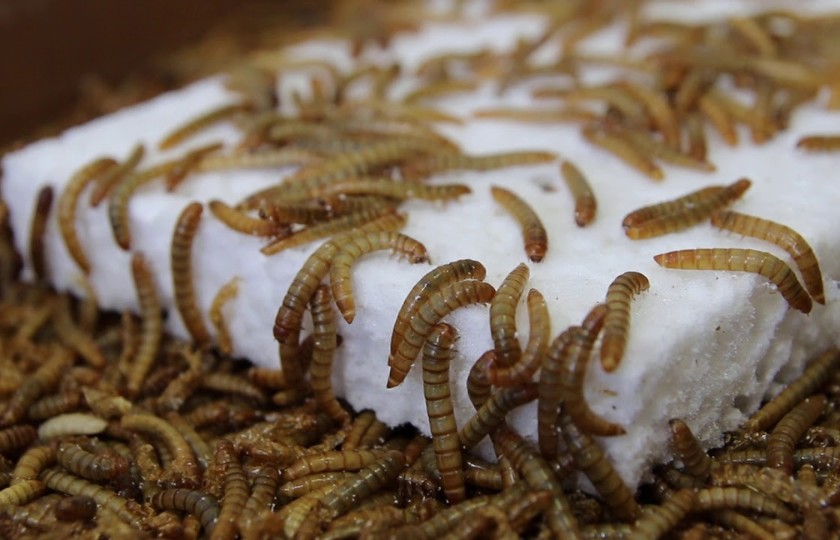Researchers at the University of Queensland have found so-called superworms with an appetite for polystyrene could be the key to recycling plastic at a mass scale.
Dr Chris Rinke, lead researcher, and his team from UQ’s School of Chemistry and Molecular Biosciences discovered the common Zophobas morio “superworm” could eat through polystyrene, thanks to a bacterial enzyme in their gut.
The scientists fed the superworms different diets over three weeks, with some given bran, some given polystyrene foam, and others put on a fast.
“We found the superworms fed a diet of just polystyrene not only survived but even had marginal weight gains,” said Dr Rinke. “This suggests the worms can get energy from the polystyrene, most likely with the help of their gut microbes.”
The researchers used metagenomics to find several encoded enzymes that can degrade styrene and polystyrene.
“Superworms are like tiny recycling plants, shredding the polystyrene with their mouths and then feeding it to the bacteria in their gut,” he explained.
Jiarui Sun, a co-author of the study, said that the team aims to grow the gut bacteria in the laboratory and further test its ability to degrade polystyrene.
Their long-term goal is to develop enzymes based on the superworms to degrade plastic waste in recycling plants through mechanical shredding, followed by enzymatic biodegradation.
“We can then look into how we can scale this process to a level required for an entire recycling plant,” said Sun.
Dr Rike added that there are many opportunities for the biodegradation of plastic waste, and they hope that this bio-upcycling method will incentivise recycling and reduce landfills.
“Our team is very excited to push the science to make it happen,” he concluded.



